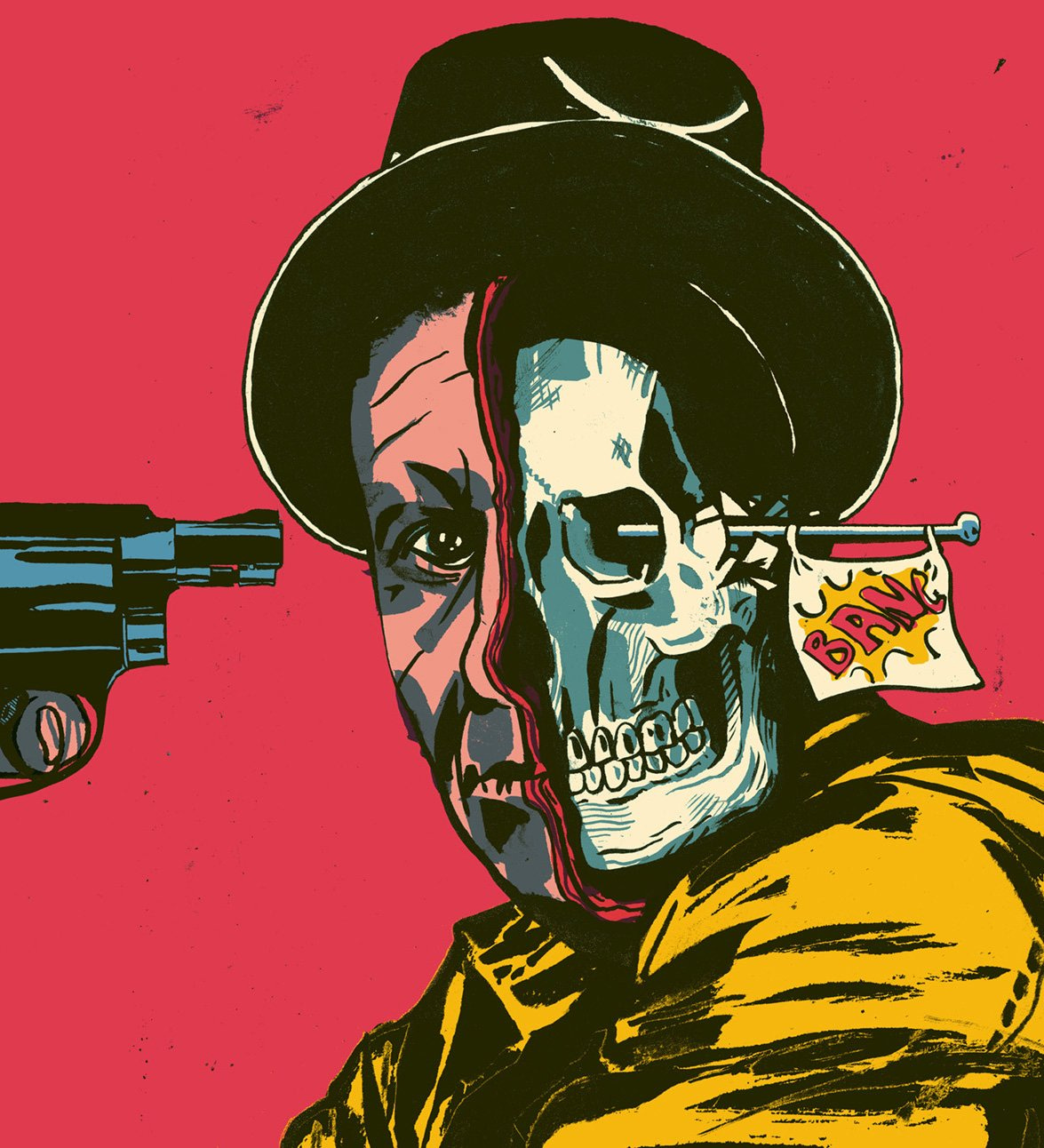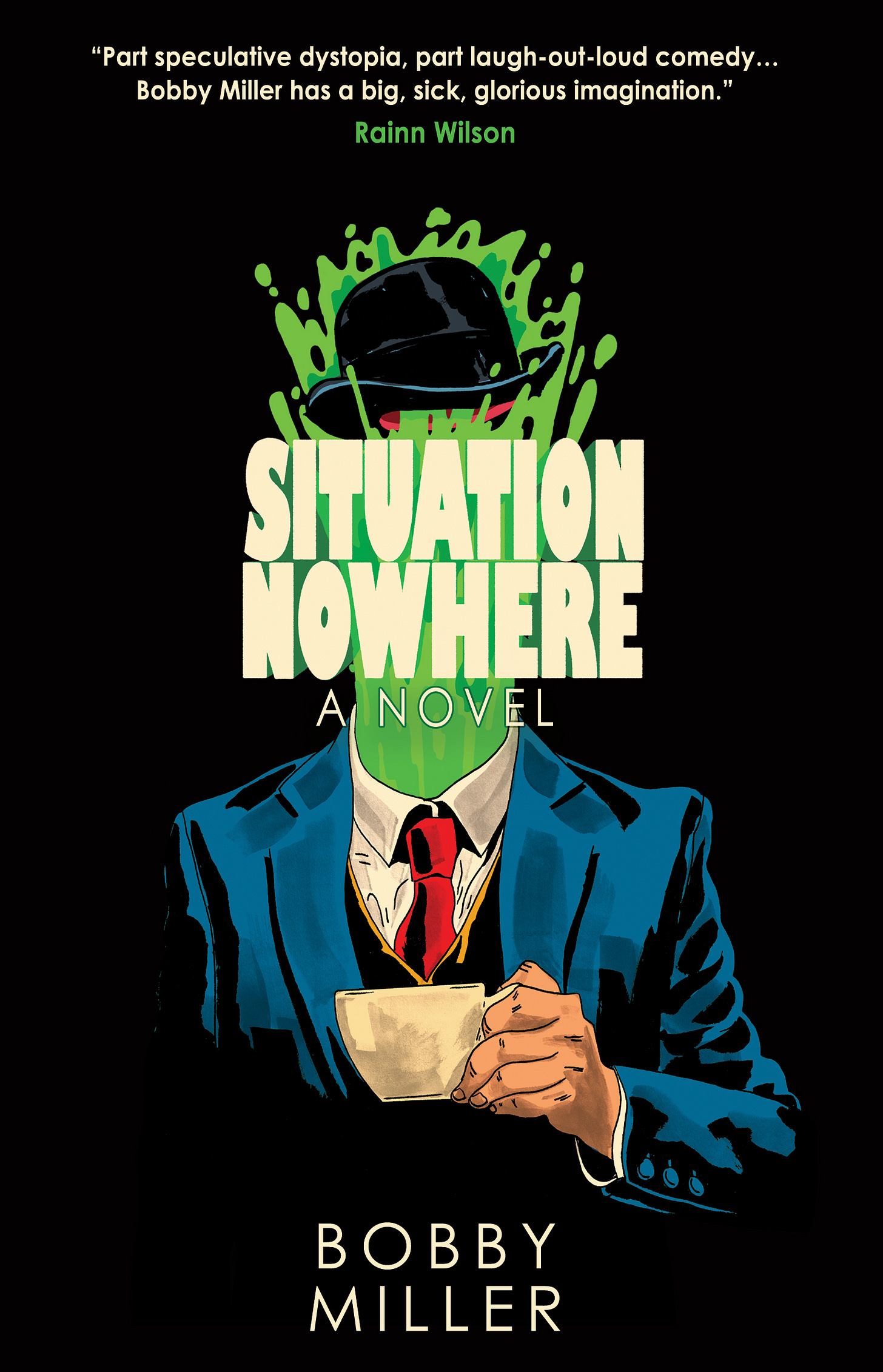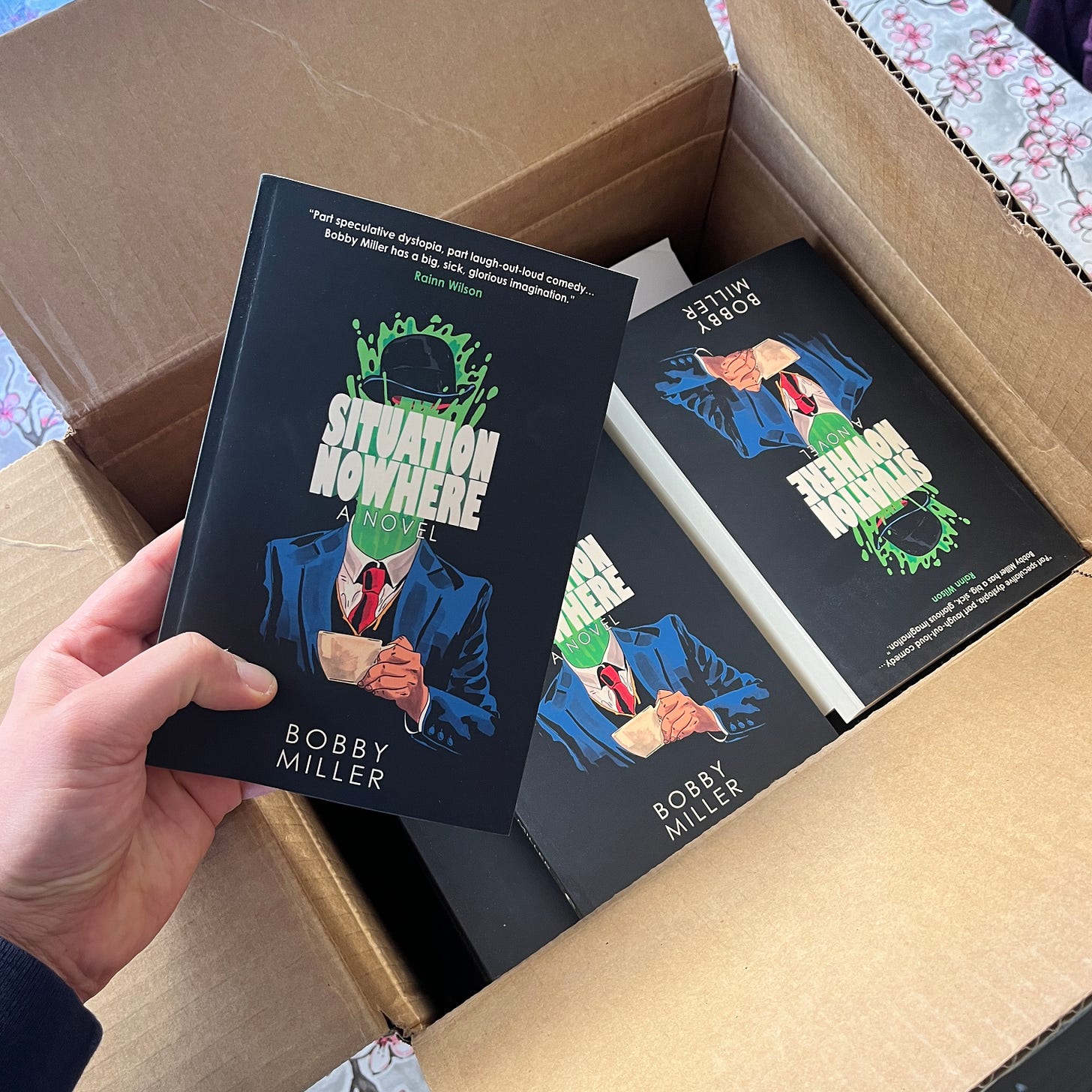How did I get my book published?
On editing, querying, and publishing.
A few weeks ago, I broke down how I wrote my first novel. Today, I want to talk about everything after that. As an elderly millennial with no connection to the publishing industry, how the hell did I get my book out there?
Before writing a word of the book, I was determined to publish three short stories in three different online journals. I wanted to prove to myself that people wanted what I was selling and earn my stripes.
I WAS SERIOUS ABOUT THIS.
In order of pub date:
Voyage Of The Damned (Maudlin House)
Virtue Signals (Bending Genres)
I Wish Kevin Was a Bag of Sand (Expat Press)
This process took an ENTIRE YEAR. But I learned a lot and read way more than I ever had. One of the first writers I responded to was Garth Miró. His short stories were great, and his novel, THE VACATION, is one of my favorites.
One big thing Garth told me was to hire a copy editor before submitting it anywhere. Other authors echoed this advice.
HIRING A COPY EDITOR
There were a few editors I was contemplating, but Garth gave me one salient piece of advice: Hire someone whose writing you like. He recommended Sam Pink.
I’ll be honest. I was nervous about the suggestion because I’m a big Sam Pink Fan. I had owned most of his books by that point. But I took the plunge, and luckily, Sam didn’t tell me to go fuck myself.
Working with Sam is like working with a sculptor. He zeroed in on the sections that I overwrote and helped streamline my prose. But what I love most about Sam is his notion of “cartoon logic.” As a filmmaker, there’s always a push and pull in me to be absurd and comic but also grounded and serious. Sam called me out on my bullshit. He intuitively knew this was a funny novel and encouraged me to go further.
Our conversations were always galvanizing. (His recent book, THE EVENT, is a surreal, satirical left turn for him that I quite enjoyed.)
THE QUERY LETTER
There is a formal process for getting an agent or publisher, and it revolves around the query letter. If you want to know how to write one, this is a good place to start.
My whole approach to this process has been one of ZERO EXPECTATIONS. The reason I wrote a book was because I had something bursting out of me. I needed to get it out. I had no grand allusions of me being an author for a living.
I say this because once you finish your book, you need to enter this next phase without any preconceived notions.
Some folks want an agent BAD, and they put all their eggs in that basket. For me, I wanted this book to E-X-I-S-T. If that was with a small press or self-published, that was fine.
Still, I chose to query agents first, with the idea that I would stagger small presses after that.
The process of querying is pretty straightforward. In fact, it was alarmingly straightforward coming from the film business. Basically, agents have their contact info on various sites with a “manuscript wish list” of stuff they like. You submit a query letter and hope they are intrigued enough to request your manuscript.
These are the three websites I used:
Query Tracker - Agent contact info, along with details on what they’re looking for.
Publishers Marketplace - Find out which books are selling and roughly for how much. Gives you a good snapshot on which agents are the busiest.
Manuscript Wish List - A good supplement to QueryTracker.
I used all three of these sites to boil down agents and small presses open to dark comedy, satire, and science fiction. Most people recommend you work in batches. Query your top ten people, wait a bit, then go down the line and query ten more. This allows you to tweak your letter if people aren’t biting, etc.
Anyway, I sent out that first batch.
And brother.
The silence was real.
Other authors warned me! They warned me REAL GOOD! Querying is a nightmare! You’re cold-emailing folks who are busy managing their clients. You’re in the dreaded “slush pile.”
During this time, I freaked out a bit. I emailed every film producer I knew with, “Random question, but do you work with any book agents?”
Everyone shrugged. But one producer knew of a film/TV rights agent. They slipped them my book, and…
This person loved it! And wanted to sell the rights!
The reaction put wind in my sails. This thing connected!
It did put me in a slightly awkward position. The whole point of this was getting the book into the world; it wasn’t about it moving into movie development hell. I asked the rights agent if it mattered what press I chose. Would they still be interested in shopping it if it went to a smaller press or self-published?
They told me it didn’t matter what I did. They still wanted to shop the book.
Fantastic.
I then used that factoid in future queries: “Hey, this got the attention of a film/TV rights agent!”
Did anyone care?
I’m not sure.
After a few months, I was getting some nibbles. Around this time, I also sent the book to small presses.
I got interest almost immediately!
This small press loved the book and called it “shelf ready”, but it wasn’t quite right for their brand. It was maybe the nicest rejection message I ever got. I texted it to one of my friends, and they replied, “Oh, that’s annoying!” I thought, no-no-no, this is good! This press was horror-centric and my book admittedly only has light touches of the stuff. This was a GREAT response because it meant that the book worked!
Months passed.
Until…
THE ONE CRAZY MONTH
At some point, several small presses were interested in the book. I eventually went with Mallory at Maudlin House. She had published my very first short story, and it seemed like a great fit, a full-circle moment.
But then, out of nowhere — my first choice for an agent — emails me.
WAIT, WHAT?!!!
I was pretty sure I was going agentless in this endeavor. But shit! This was my first choice! I had to talk to him! He was great and had a few notes, all good ones! And I was in a dilemma.
I didn’t want to ruin the deal with Maudlin House, but I was also seduced by the idea of potentially selling this to a bigger publisher. I mean, why not?
Mallory was super generous in giving me a window to “explore bigger fish.” I took the agent's notes, and they improved the book. But I wasn’t sure this book was necessarily a “big publisher book.” It’s pretty out there. Eventually, he agreed.
As someone who has agents and managers on the film side, I can’t tell you how rare it is for an agent to say, " No, let’s NOT take this out and try to make some $$$. The best move is to release this with a small press.”
And so-
I SIGNED A CONTRACT WITH MAUDLIN HOUSE
Because of the back-and-forth with my agent, my time to finalize the book had shrunk. I had to boogie! Mallory sent the book to a stable of beta readers for feedback. Meanwhile, we started talking about the cover.
I’m a fan of Erik Hoel’s substack. And his posts frequently showcase art by Alexander Naughton. Alexander’s work was poppy and surreal:
The process was pretty straightforward. Mallory and her partner, Bulent, were excellent collaborators. We were a united force, giving Alexander detailed and precise notes. If you’ve visited Maudlin’s website, you know they understand good design.
THE EDIT
After receiving feedback from beta readers, Mallory sent me her notes, and it was my job to take one final pass. After that, the book was given to a proofreader and then sent back to me, laid out, for one last look.
I have no idea how anyone else does it. But that’s how Maudlin House did it, and I was happy with the process.
BLURBS
Guys, I was going after blurbs while I was querying. Was that a good idea? Maybe not. But I was confident in the book and wanted to get the ball rolling.
Several blurbs were from people I didn’t know personally. I liked their work and thought they might like what I was doing.
Asking for a blurb is a BIG ASK, and I treated it as such. Plenty of folks ghosted me, but enough got back to me to fill a few pages.
OKAY. WHAT DID I LEARN?
1.) Patience is a virtue.
2.) There are so many tips and tricks for querying online. This post included. But at the end of the day, you write your own ticket. There are no rules. The only real rule is never to be boring. Always try to be engaging. Stand up and sell yourself. That used to be something I found very gross. But, having had to do it many times in the film business, I now treat it as a game. There’s Bobby, the artist, the one trying to make something. And then there’s agent bobby. Agent bobby is gonna play the game and try to honor artist Bobby’s time and vision.
3.) When in doubt, self-publish. And I say this with a caveat. The thing with my book is that I never got feedback that said, “THIS SUCKS, FUCK YOU.” If I were getting that feedback consistently, then yes, I would rethink self-publishing cause maybe, just maybe, the thing I was working with sucked. But, if the feedback is good — from strangers — then sometimes, the market, the vibe, the whatever, is off. And you have to take matters into your own hands. This is not a weakness. Take Sam Pink. This dude self-publishes all the time. And it’s awesome. He has an audience that he creates stuff for and doesn’t need a publisher. Does that make what he’s doing any less valid? Hell no. If anything, I feel like I’m in on a secret reading Sam Pink. It feels special. And when the writing’s good, who gives a shit?
PS. I have consolidated all of these “novel process” posts here.
My book is out next Tuesday, March 25th. After that, I promise to stop all this self-promotional book talk!







